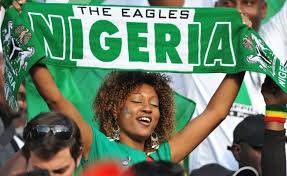
Sports have always played a significant role in shaping the national identity and fostering unity among people. In the case of Nigeria, a country with diverse cultures, languages, and ethnicities, sports have served as a powerful tool to bring people together and strengthen the sense of national pride. This article delves into the impact of sports on Nigeria’s national identity and unity, highlighting the historical background, the role of football, sports as a unifying force, challenges and controversies, and future prospects.
Historical Background
Nigeria has a rich sports history that dates back several decades. The country’s sporting journey began during the colonial era when British colonial masters introduced sports such as football, athletics, and boxing. Over time, sports became deeply ingrained in Nigerian culture, and they started to play a central role in the lives of its people.
Sports have become more than just a recreational activity; they have become a way of life for Nigerians. The passion for sports runs deep within the Nigerian society, transcending ethnic and religious boundaries. Whether it is football, athletics, basketball, or traditional sports like wrestling, sports have become an integral part of Nigerian culture.
Impact of Sports on National Identity
Sports have played a crucial role in fostering a sense of pride and patriotism among Nigerians. When Nigerian athletes compete on the international stage, they carry the hopes and aspirations of the entire nation. Victories and achievements in sports instill a sense of national pride, reinforcing the idea that Nigerians can excel in various fields.
One of the most influential factors in shaping Nigeria’s national identity through sports is the success of national sports teams like the Super Eagles. The Nigerian national football team, with its passionate fan base, has united the nation during major tournaments such as the FIFA World Cup and the Africa Cup of Nations. The team’s performances on the global stage have sparked a sense of collective identity and pride among Nigerians, transcending regional, ethnic, and religious differences.
Role of Football in Nigeria
Football holds a special place in the hearts of Nigerians and is undoubtedly the most popular sport in the country. It has the power to bring people from diverse backgrounds together, fostering national unity and social cohesion. Football matches, both at the grassroots and professional levels, serve as a unifying force, creating a shared experience that cuts across societal divisions.
Nigeria’s football players, both at home and abroad, serve as role models for aspiring young athletes. Their success stories inspire millions and provide a sense of hope and possibility. Football academies and grassroots development programs contribute to nurturing young talent and promoting social integration by bringing together children from different backgrounds to learn and play the sport they love.
Sports as a Unifying Force
Several sports events and tournaments have played a significant role in uniting Nigerians. The National Sports Festival, organized biennially, brings athletes from different states across the country to compete in various sports disciplines. This event showcases the talent and diversity of Nigeria’s sporting prowess while promoting unity and healthy competition among participants.
Additionally, international competitions like the Olympics and the Commonwealth Games provide opportunities for Nigerians to rally behind their athletes as they compete against the world’s best. These events create a sense of camaraderie, with Nigerians collectively celebrating the achievements of their athletes.
Furthermore, initiatives such as the Nigerian Football Supporters Club, a passionate group of football enthusiasts, gather to support the national team. Their unwavering support and enthusiasm during matches create an electric atmosphere, fostering a sense of unity and solidarity among Nigerians.
Challenges and Controversies
While sports have undoubtedly had a positive impact on Nigeria’s national identity and unity, they are not without challenges and controversies. Sports corruption and mismanagement have been persistent issues plaguing Nigerian sports. Cases of embezzlement, match-fixing, nepotism, and bribery have tarnished the integrity of sports institutions, hindering their potential to contribute to national unity and pride.
Controversies related to national team selection and performance have also sometimes divided the nation. Disputes over player eligibility, coaching decisions, and team performance have led to heated debates among Nigerians, highlighting underlying regional and ethnic tensions. However, despite these challenges, sports continue to be a unifying force in Nigeria.
Future Prospects
Nigeria has significant potential for further development of sports. With a large population and abundant talent, the country can leverage sports to strengthen its national identity and unity. Investments in sports infrastructure, grassroots development programs, and institutional reforms are essential to unlocking this potential.
Furthermore, there are opportunities for Nigeria to host international sports events, which would not only showcase the country’s capabilities but also provide a platform for Nigerians to unite and celebrate their culture, diversity, and sporting achievements on a global stage.
In Conclusion
Sports have played a vital role in shaping Nigeria’s national identity and fostering unity among its diverse population. Football, in particular, has served as a unifying force, bringing Nigerians together and instilling asense of national pride. The success of national sports teams like the Super Eagles has contributed significantly to Nigeria’s collective identity, transcending regional and ethnic differences. However, challenges such as sports corruption and controversies surrounding national team selection and performance persist.
Despite these challenges, the future prospects for sports in Nigeria are promising. With the right investments and reforms, sports can further strengthen Nigeria’s national identity and unity. By leveraging sports as a platform for social integration, promoting grassroots development, and hosting international events, Nigeria can continue to harness the power of sports to unite its people and showcase its sporting prowess to the world.
In conclusion, sports have had a profound impact on Nigeria’s national identity and unity. They have fostered a sense of pride, brought people together, and transcended societal divisions. As Nigeria moves forward, sports will continue to be a powerful tool for building a strong and cohesive nation.
